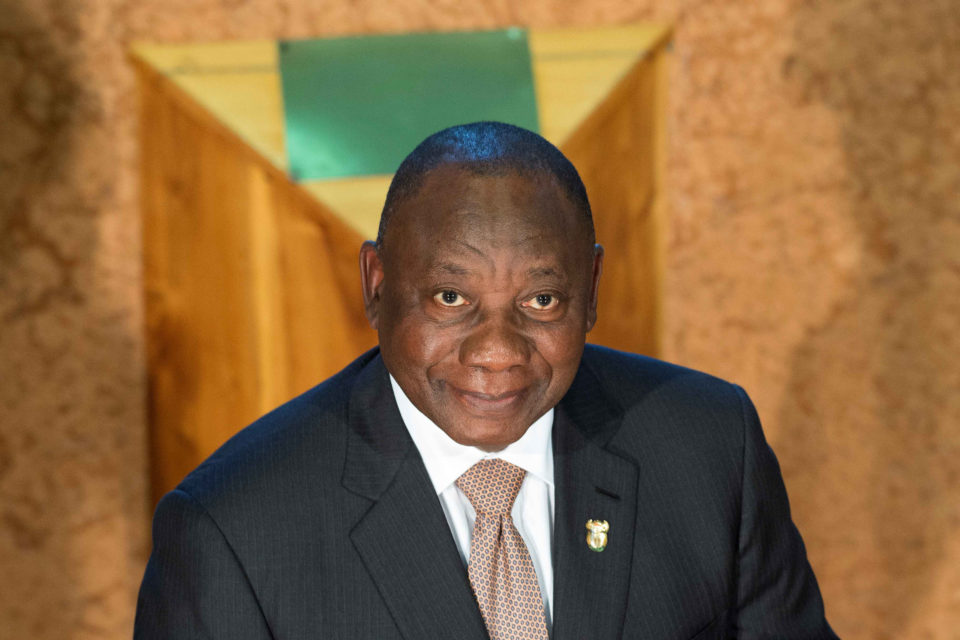A spark in the Sona tunnel
The Competition Amendment Bill is a valuable intervention that could help to break down monopolies. So why is Ramaphosa hesitating to sign it?
Author:
12 February 2019

President Cyril Ramaphosa’s State of the Nation address (Sona) now seems a long time ago. On the other side of rolling power cuts, a speech that opens with “we can attest to meaningful progress” seems almost laughable. But even prior to stage 4 load shedding, the speech had a certain grim humour.
“We have begun to rebuild a durable social compact,” he said, as the municipality in Durban armed itself with casspirs. As one resident of a shack settlement put it: “When we cry, no one cares. So why should we care about this speech?”
Related article:
But the speech did have one important and hopeful point, namely the commitment to sign the Competition Amendment Bill. To understand why this bill is so important, think about how many monopolies or cartels we face every day. From beer to banks, polony to insurance, most of our markets are dominated by one, two or a handful of producers. Alongside our low savings rates, that fact – “market concentration” – is one of the most striking about our economy.
Big business and its apologists go to great lengths to pretend that concentration is not a problem. Business Day calls it “overstated or false”, an excuse for a “witch hunt”, and has implied that fixing concentration will be inappropriate for South Africa because it is small. This is not surprising, given that it is precisely such concentration that makes South African companies so profitable at home. As investment management firm Allan Gray has put it, “most countries are more competitive and less profitable than South Africa”.
Monopolies and cartels
The simplest way to express our degree of concentration is through beer. When Belgium-based AB InBev bought out SABMiller a couple of years ago, European, American and Chinese regulators required the merged company to sell off units in their markets until it had less than a 50% market share combined. In South Africa, SAB’s share is above 80%. (Formerly a subsidiary of SABMiller, SAB or South African Breweries is now a subsidiary of AB InBev.) So it comes as no surprise that budding industrialist Ndumiso Madlala, the founder of Soweto Gold, felt he had no choice but to sell to Heineken to survive. Perhaps big business and its apologists believe it is only Europeans, Americans and the Chinese who deserve a competitive beer market.
The monopolies and cartels have remained in place largely because the prior law for antimonopoly (antitrust) regulation was toothless.
It had some power to interfere when companies bought each other, but none to deal with existing monopolies. The bar to prove companies were abusing market dominance was extremely high and firms were left with numerous avenues of appeal.
The new bill fixes most of these problems. It brings us up to the standard of antitrust law that prevails from Chile to China. It is necessary, important and urgent.
Related article:
Of course, the promise to sign it is only a first step. Unfortunately, the bill leaves the Economic Development Department in charge. This is the same department that spent R200 million on a healthcare inquiry that told us, shockingly, that insurance company Discovery makes a lot of money while taking only a cursory glance at the monopolies in blood testing, which result in an annual check-up draining your bank account faster than your veins.
The department also oversees the Industrial Development Corporation (IDC), one of whose tasks is to lend money to upcoming black entrepreneurs to help transform the economy. Anyone who’s spoken to aspiring black industrialists knows that if there’s an obstacle almost as serious as entrenched white monopolies, it’s the bureaucracy of the IDC.
This also presumes that the president will, in fact, sign the bill. Parliament passed it in December, so it’s not clear why he didn’t just sign it last week and announce “I have signed it” rather than “I will sign it”. His defenders say his extraordinary lethargy on all fronts is caused by ANC factionalism, so perhaps Deputy President David Mabuza and former Finance Minister Trevor Manuel take turns stealing his pens.
Business dislikes the bill, and the president likes business. So public pressure must be maintained on the president until he follows through and signs it, then properly funds and staffs the Competition Commission, overhauling its management and that of the department along the way.
Empty catchphrases
It’s difficult to find much meaning for the economy in the rest of the speech.
The reorganisation of Eskom, heralded by business and bitterly opposed by trade unions, seems to be an excuse to simultaneously increase tariffs and shift some of Eskom’s interest costs on to the budget, without denting the debt or getting the lights back on.
The speech descended into farce near the end, with the commission on the “fourth industrial revolution”. Little demonstrates better how provincial the South African elite is than their obsession with that phrase.
Aside from the competition bill commitment then, the only useful thing about the speech was that it revealed which side of Davos we’re ruled by – not the billionaires but the consultants, spouting catchphrases in the vain hope of being taken seriously.
Then again, for the past 25 years, it’s tough to think of a single meaningful outcome from a single Sona. An explicit commitment to sign an important bill that should have been signed already is, by that low bar, not meaningless.
As the load shedding rolls on and the electoral machines limber up, the truly important speech – the budget, likely the herald of structural adjustment – approaches.


